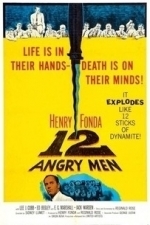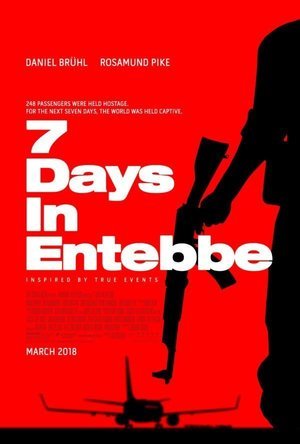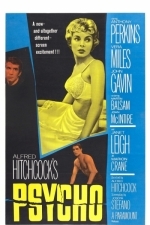Search
Search results
Jesse Malin recommended 12 Angry Men (1957) in Movies (curated)
BankofMarquis (1832 KP) rated 7 Days In Entebbe (2018) in Movies
Mar 22, 2018
Doesn't really work
Most of us (including me), when we heard about the new film 7 DAYS IN ENTEBBE, thought to themselves "didn't they just make this film a few years ago...?" The answer is yes. A similar film to this - RAID ON ENTEBBE - was a TV movie made a few years ago - 42 years ago, to be precise. It starred Peter Finch, Martin Balsam, Jack Warden and good ol' Charles Bronson. Made a mere few months after the true events, this slapped together movie was an old-fashioned "shoot 'em up."
This film is most definitely not.
7 DAYS IN ENTEBBE tells the true story of the 1976 Air France Hijacking of (mostly) Israeli citizens that settle in Entebbe, Uganda (under the leadership of crazed dictator Idi Amin) - refusing to negotiate with terrorists, the Israeli government plan, stage and execute a daring rescue mission.
Sounds like a pretty good plot for a Charles Bronson shoot-em-up.
In this version, Director Jose Padilha (the 2014 remake of ROBOCOP) decides to focus most of his attention not on the hijacked Israeli citizens, but rather, a pair of German hijackers juxtaposed against the political infighting in Israel between Prime Minister Yitzhak Rabin and Defense Minister Shimon Peres. The Israeli governmental infighting was interesting to watch with intriguing characters and cat-and-mouse back-stabbing politics while the plight of the kidnappers was underwritten and underwhelming. Consequently, this film was "just okay".
Oh...and it had about an hour-fifteen minutes of content stretched over an hour-forty-five minutes, so to stretch things out, Padilha decided to cut back and forth between the action (what there was of it) and a modern dance recital. Clearly he was trying a metaphor of the dance punctuating the emotions and actions elsewhere. It just didn't work for me.
Neither did this film. Skip this one and check out the Charles Bronson shoot-em-up.
Letter Grade C+
5 (out of 10) stars and you can take that to the Bank(ofMarquis)
This film is most definitely not.
7 DAYS IN ENTEBBE tells the true story of the 1976 Air France Hijacking of (mostly) Israeli citizens that settle in Entebbe, Uganda (under the leadership of crazed dictator Idi Amin) - refusing to negotiate with terrorists, the Israeli government plan, stage and execute a daring rescue mission.
Sounds like a pretty good plot for a Charles Bronson shoot-em-up.
In this version, Director Jose Padilha (the 2014 remake of ROBOCOP) decides to focus most of his attention not on the hijacked Israeli citizens, but rather, a pair of German hijackers juxtaposed against the political infighting in Israel between Prime Minister Yitzhak Rabin and Defense Minister Shimon Peres. The Israeli governmental infighting was interesting to watch with intriguing characters and cat-and-mouse back-stabbing politics while the plight of the kidnappers was underwritten and underwhelming. Consequently, this film was "just okay".
Oh...and it had about an hour-fifteen minutes of content stretched over an hour-forty-five minutes, so to stretch things out, Padilha decided to cut back and forth between the action (what there was of it) and a modern dance recital. Clearly he was trying a metaphor of the dance punctuating the emotions and actions elsewhere. It just didn't work for me.
Neither did this film. Skip this one and check out the Charles Bronson shoot-em-up.
Letter Grade C+
5 (out of 10) stars and you can take that to the Bank(ofMarquis)
BankofMarquis (1832 KP) rated Psycho (1960) in Movies
Oct 29, 2018
An all-time great performance by Anthony Perkins
I'm sure all of you have (at least) heard of the 1960 Alfred Hitchcock film, PSYCHO. And I'm sure most of you have seen (at least in part) the famous "shower scene". But when was the last time you really sat down and watched this film? It had been awhile for me and I walked away with the following impression:
PSYCHO is not all that scary, but it is suspenseful as heck with strong Direction by the "Master of Suspense" and very strong performances anchoring the front and back end of the film.
PSYCHO was billed when it came out as a "Janet Leigh Film". So, to give this review context, let's look at who Janet Leigh was at the time. Before shooting PSYCHO, Leigh was generally cast as the ingenue and/or love interest in mainstream fair such as LITTLE WOMEN, ANGELS IN THE OUTFIELD and HOUDINI (a modern "comp" to her might be someone like Anne Hathaway before she started doing "edgier" work). Leigh did show that there was more to her than just being an ingenue when she played the morally ambiguous wife of Charlton Heston's character in Orson Welles' TOUCH OF EVIL. This film (probably) gave Hitchcock the idea to cast Leigh in PSYCHO.
When 1960's audiences first saw Leigh on screen in PSYCHO, I'm sure that most of them were shocked for, instead of being the pure and wholesome ingenue and wife, she plays the entire first scene in a bra and slip. Her character, Marion Crane, is not morally ambiguous, she is morally corrupt - and when Leigh's character has a chance to act on her moral corruptness, she jumps at the chance. The rest of the first half of this film is Leigh trying to get away with her "crime". She is quite good in this part of the film and was nominated for an Oscar for Best Supporting Actress (deservedly so).
And then...Anthony Perkins shows up.
We are about 45 minutes into the 1 hour and 49 minute film when Perkins' Norman Bates first appears on screen and an interesting thing happened - I couldn't take my eyes off of him. I was enjoying Leigh's performance but instantly pushed her aside (and to the background) when Perkins shows up. Without giving plot away, let me say that there is much, much going behind Norman's eyes and the performance by Perkins strongly suggests this, without going over-the-top or being melodramatic. It is a perfect blend of actor, character and performance and I was shocked that he was not even NOMINATED for an Oscar (Peter Ustinov would win for SPARTACUS). Perkins performance is one of the all-time greats with one of the most interesting and unusual characters - and portrayals - of all time.
Much of the credit for Perkins' and Leigh's strong performances have to go to Director Hitchcock who was at the height of his Directing powers (and power). From the "get go", you can feel the Director's hand in this film, building suspense from scene to scene and shot to shot, first with Leigh's character and, later, with Perkins. Both characters are trying to get away with something and Hitchcock pulls his camera in close to make a point - from a distance all seems good, but when you get up close, you can tell that things are very bad, indeed.
The filming of the famous "shower scene" is well documented and is a Master Class in film and editing. It is worth the price of admission on it's own - as is a scene on a staircase with Private Detective Arbogast, played by Martin Balsam. Hitchcock chooses to heighten the realism in this scene on the staircase by going a more esoteric route (rather than traditional filming of the events) and, one can argue, it doesn't belong in this film. Until, that is, you think about it and then it makes great sense and absolutely, positively has to be in this film in that way.
Another aspect of this film that begs to be mentioned is the Film Score by the great Bernard Herrmann - Hitchcock's regular collaborator. The music in this film punctuates the action on the screen - from the persistent beat and pacing of the opening credits music - driving the audience forward into the action - that does not let go, reaching it's peak and crescendo in the shower scene and then floating down gently like an animal catching it's breath after great activity.
Does the entire film hold up almost 60 years later? Almost...but not quite. Most annoying to me was the "wrap-up" scene at the end where a character spells out everything for the audience. As if we are not smart enough to "get it" - and perhaps the audiences in 1960 weren't.
But that is a quibble for a film that is a classic and is one that, if you have not seen (or seen for awhile), begs to be seen. Check out this film, not for the scares, but rather, the suspense that is generated by Hitchcock and his performers throughout. A GREAT entree into the world of Alfred Hitchcock films.
Letter Grade: A
9 (out of 10) stars and you can take that to the Bank (ofMarquis)
PSYCHO is not all that scary, but it is suspenseful as heck with strong Direction by the "Master of Suspense" and very strong performances anchoring the front and back end of the film.
PSYCHO was billed when it came out as a "Janet Leigh Film". So, to give this review context, let's look at who Janet Leigh was at the time. Before shooting PSYCHO, Leigh was generally cast as the ingenue and/or love interest in mainstream fair such as LITTLE WOMEN, ANGELS IN THE OUTFIELD and HOUDINI (a modern "comp" to her might be someone like Anne Hathaway before she started doing "edgier" work). Leigh did show that there was more to her than just being an ingenue when she played the morally ambiguous wife of Charlton Heston's character in Orson Welles' TOUCH OF EVIL. This film (probably) gave Hitchcock the idea to cast Leigh in PSYCHO.
When 1960's audiences first saw Leigh on screen in PSYCHO, I'm sure that most of them were shocked for, instead of being the pure and wholesome ingenue and wife, she plays the entire first scene in a bra and slip. Her character, Marion Crane, is not morally ambiguous, she is morally corrupt - and when Leigh's character has a chance to act on her moral corruptness, she jumps at the chance. The rest of the first half of this film is Leigh trying to get away with her "crime". She is quite good in this part of the film and was nominated for an Oscar for Best Supporting Actress (deservedly so).
And then...Anthony Perkins shows up.
We are about 45 minutes into the 1 hour and 49 minute film when Perkins' Norman Bates first appears on screen and an interesting thing happened - I couldn't take my eyes off of him. I was enjoying Leigh's performance but instantly pushed her aside (and to the background) when Perkins shows up. Without giving plot away, let me say that there is much, much going behind Norman's eyes and the performance by Perkins strongly suggests this, without going over-the-top or being melodramatic. It is a perfect blend of actor, character and performance and I was shocked that he was not even NOMINATED for an Oscar (Peter Ustinov would win for SPARTACUS). Perkins performance is one of the all-time greats with one of the most interesting and unusual characters - and portrayals - of all time.
Much of the credit for Perkins' and Leigh's strong performances have to go to Director Hitchcock who was at the height of his Directing powers (and power). From the "get go", you can feel the Director's hand in this film, building suspense from scene to scene and shot to shot, first with Leigh's character and, later, with Perkins. Both characters are trying to get away with something and Hitchcock pulls his camera in close to make a point - from a distance all seems good, but when you get up close, you can tell that things are very bad, indeed.
The filming of the famous "shower scene" is well documented and is a Master Class in film and editing. It is worth the price of admission on it's own - as is a scene on a staircase with Private Detective Arbogast, played by Martin Balsam. Hitchcock chooses to heighten the realism in this scene on the staircase by going a more esoteric route (rather than traditional filming of the events) and, one can argue, it doesn't belong in this film. Until, that is, you think about it and then it makes great sense and absolutely, positively has to be in this film in that way.
Another aspect of this film that begs to be mentioned is the Film Score by the great Bernard Herrmann - Hitchcock's regular collaborator. The music in this film punctuates the action on the screen - from the persistent beat and pacing of the opening credits music - driving the audience forward into the action - that does not let go, reaching it's peak and crescendo in the shower scene and then floating down gently like an animal catching it's breath after great activity.
Does the entire film hold up almost 60 years later? Almost...but not quite. Most annoying to me was the "wrap-up" scene at the end where a character spells out everything for the audience. As if we are not smart enough to "get it" - and perhaps the audiences in 1960 weren't.
But that is a quibble for a film that is a classic and is one that, if you have not seen (or seen for awhile), begs to be seen. Check out this film, not for the scares, but rather, the suspense that is generated by Hitchcock and his performers throughout. A GREAT entree into the world of Alfred Hitchcock films.
Letter Grade: A
9 (out of 10) stars and you can take that to the Bank (ofMarquis)


